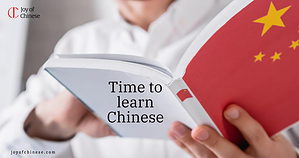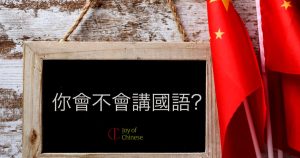If you are learning Chinese or want to start, working as a translator could be at the top of your mind. This is one of the most sought-after goals for many passionate learners of foreign languages, including Mandarin.
The importance of Chinese language skills is not limited to cultural elements. Or scholarships in China and enjoying C-pop, C-dramas, and C-movies. There is a world of career opportunities involving your language knacks.
The economy’s growth in China and cultural prominence led to Chinese becoming a widely recognized language worldwide.
As a result, millions are studying or wish to learn one of the types of the Chinese language. Then there are also over a billion native speakers, making it the most spoken native tongue globally.
But the language is more valuable than admiring various aspects of China’s thriving market and entertainment industry.
Your fluency in the Chinese language can provide job potential in various fields.
One such choice is a Chinese translator. It is a great career option that offers a good income, flexibility, and favorable work conditions.
The job fascinates many learners and linguists who want to plunge into everything in China. And it is natural to know what it takes to get into this employment and how to make a successful career.
How can your Mandarin ability help throughout your career as a translator? How much money can you make, what types of professions, the requirements, and where to find employment possibilities?
In this article, I will cover the complete understanding of the Chinese translation job! So let’s find out all in detail.
TABLE OF CONTENTS
- What does a Chinese translator do?
- Types of translation
- Is a Chinese translator a promising career?
- Disadvantages of a translator
- How to become a Chinese translator?
- How to get the translation project?
- How much does a Chinese translator earn?
- Final Words— Could this be a profession for you?
What does a Chinese translator do?
A Chinese translator translates written texts from Chinese into another language or vice versa. To do this, you must analyze, edit, and rewrite in the target language.
Advanced competency in at least two languages is mandatory. It includes Chinese and one more language. So it is easy to convey messages from one language to another.
Translators usually translate the documents into their mother tongue or into one where they hold an advanced ability.
For example, you will translate Chinese into your mother tongue, say, Spanish, if you speak Chinese as a second language. But, of course, this isn’t always the case as it depends on your language skills.
The translator’s job is to understand the text in the source language. Then it translates natural and correct texts into the target language. Besides being grammatically correct, this should also be culturally appropriate.
Translators convey the original author’s meaning and the exact context in their final output as much as possible.
Translation matters for most business meetings, live events, conferences, and document works. Hence, it is vital to understand every detail before translating it.
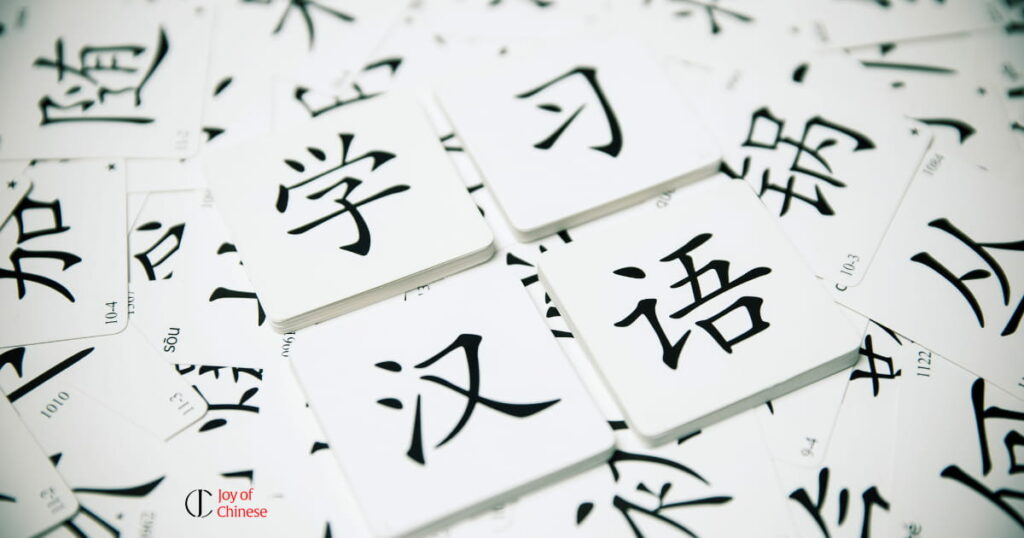
Can a machine replace human translation?
The short answer is no.
The complexity of languages makes machine outputs unsuitable for replacing human translations. Not soon, at least.
There are obvious reasons for this.
The same term can mean different things in different languages. In other ways, what works in one language might not work in another. We also related words to context. Thus, translations may be incorrect.
Today, plenty of software and apps for Chinese language translation exist. They are continually improving. But it’s far from satisfactory and leaves much to be desired.
A machine can’t give accurate results because of variations in word order, grammatical rules, and character combinations based on context.
Culturally sensitive situations and the honorific system make it harder. For instance, each Mandarin Chinese syllable has its own meaning.
There are many Chinese characters in one word. You can tell which isn’t helping based on the context and computer output. Even though machine translation is fast and inexpensive. Still, quality differs significantly.
Because of this, professional Chinese translators remain in high demand worldwide. It is only human professionals can meet complex and mission-critical needs.
How is it different from interpretation?
There is a common misconception that translators and interpreters are the same professions. But there is one big difference between the two.
The Chinese translator specializes in translating written material. Interpreters only work with spoken languages.
Translation applies to changing written texts, and interpretation focuses on spoken language. Hence, the roles of translators and interpreters are distinct.
You will see an interpreter with a foreigner when they speak on official business. Yet, sometimes you can have successful verbal dialogues when the language barrier is removed.
It is more difficult to interpret someone’s speech because you need to know what they’re saying in their own language. So, after that, speak in a language different from the original speaker’s.
As you’d expect, interpreters make more than translators because of job difficulties. Also, since the work requires accuracy and pro-activeness.
Types of translation
You can translate various kinds of text. There are three broad categories.

(i) General Translator
General translators are typically the first to enter the profession. So, it is common to refer to them as a translator for “general purposes” as “generalists.”
The content of this work is not specialized.
It doesn’t need expert knowledge or a thorough background in the field to understand. Any professional translator can handle the work.
The text may still have some dialects, slang, and technical terms. Still, most people can understand it with little extra effort and research.
Standard business information, such as product and service details. Non-technical reports, social media, and website content are also included. These all fall under this category.
(ii) Specialized translator
Besides all-around needs, many need a specialist translator for most translations in this category.
Many factors decide how long it takes to learn Chinese. For example, it takes three to five years to become a translator. Likewise, establishing authority in specialized fields takes time and effort.
Specialized translations come in many forms. These include travel, legal, finance, education, sales, marketing, medical, commercial, scientific, and technical fields.
There has been a massive growth in multimedia content because of the popularity of TV shows and films for Chinese learners.
And so, there is a great market for voice-overs, dubbing projects, scripts, and subtitles. Also, C-pop lyrics are in high demand for learners.
Transliteration, translation, and audio translation are also popular areas of work. Recent years have seen an increase in all these demands.
Are you attracted to literary work? You can then translate texts from Chinese to your native language.
This category comprises poems, essays, plays, novels, and short stories. There are also texts on history, literature, culture, etc.
Research, self-help, and science have also found a massive market for conversion. So, it is possible to find many prospects in the publishing industry and educational books in diverse fields.
(iii) Transcreation
Transcreation refers to converting content from one language to another. The tone, intent, goal, context, and style will remain the same during this process.
As it stands, they do not change sentence by sentence.
The translator can add creativity to the content and use cultural familiarity. Again, this is to make it more appealing to a new audience.
This is done so that the reader can more easily understand the text. That depends on many things, of course.
Cultural nuances, localization, and marketing considerations become more exciting in language terms.
Copywriters offer most of these services. Still, creative translators can perform these tasks. And they make more earnings than translators.
Is a Chinese translator a promising career?
The translation is an exciting career choice for many reasons. So let’s take a closer look!
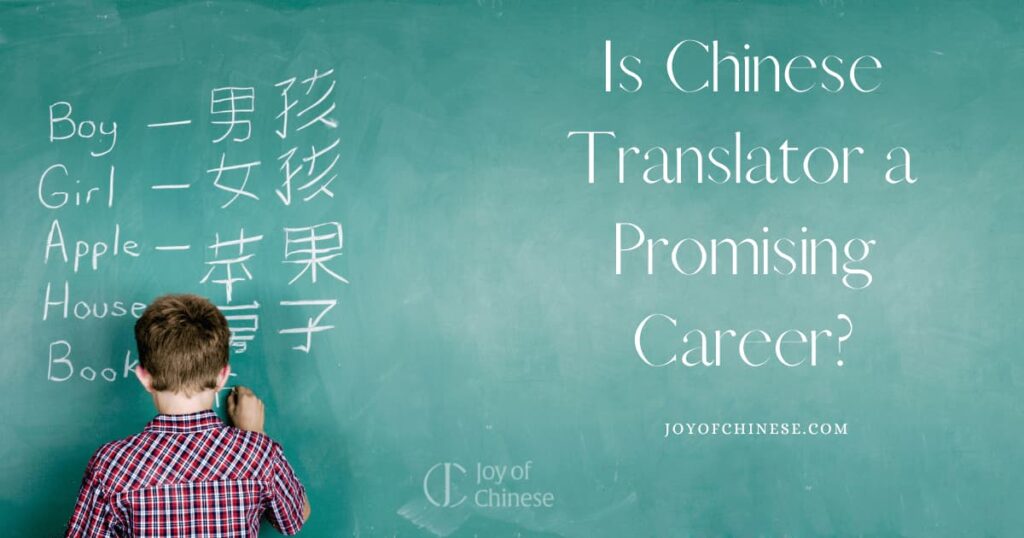
1. Take advantage of the flexibility of freelancing
A freelance Chinese translator as a career is ideal if you want to live a flexible lifestyle.
Self-employed translators make up most of this profession. That’s what makes this profession so rewarding! Finally, you will be free to set your hours and be your boss.
You can have a successful translation career thanks to the advancement of technology and high-speed internet. The best part is that it can be done anywhere at your convenience.
Following a fixed schedule doesn’t require you to manage your time. The workspace, hours, and pay rate are all up to you.
It gives you more control over your work schedule.
A translation job might take you 50 hours to complete, for instance.
Now, you are in total control of when you complete these hours. It won’t matter how much time you spend working on it every day or week as long as it gets done before the deadline.
In summary, they get what they want, and you do it your way and make money.
2. You can make good money
There is a strong demand for translators among Chinese learners. Since incomes are the most critical factor, this occupation is widespread worldwide.
There is always a high demand for skilled translators. Specialization, expertise, and experience all contribute to their increased earnings.
A translator’s average salary is higher than other language-related jobs. As an outcome, there is also a rapid growth in job openings for translators.
Even though there is a need for all languages, less spoken and more complex languages like Chinese are in higher demand.
Also, China’s rapid rise on the global business stage has resulted in high pay for translators.
Instead of being paid by the hour, freelance translators earn by the project, page, or word. Besides, you can work full-time and get a paycheck weekly or monthly, depending on your regular hours.
3. You will learn valuable new skills.
As a translator, you will learn many things.
Your writing, editing, and grammar skills will improve. Over time, your vocabulary will increase as well.
You will learn not only different aspects of Chinese but also cultural sensitivity and industry-specific facts.
You build your client base, approach customers, and manage timetables. And you also know how to juggle several projects at the same time.
You will be responsible for knowing technical details and how to operate various apps and software for your job. Thus, it is helpful to be technically savvy about digital products.
Disadvantages of a translator
There are some negative aspects too.
First, to begin with, there is no guarantee for the work. Further, incomes often fluctuate.
It is common for translators to work temporarily for only a short time. Of course, there are positive parts to freedom and flexibility. Still, you also repeatedly have to deal with stressful deadlines and complex projects.
To maintain your reputation and impress your clients, you work hard.
It is also possible that you might not get your desired job every month. As a freelancer, you may experience long periods of unemployment. That’s a notable shortcoming of Chinese translators.
There is an advancement in machine learning technology. This has led to questions about future job prospects involving Chinese translators.
It looks unlikely that online tools can replace human translators. Still, some employers do not hire translators these days for non-essential work.
Because online tools such as Google and Bing translators are easily accessible, this is possible.
As a translator, you may eventually get bored. Due to repetitive work and staring at a computer screen most of the time, this job is not suitable for everyone. So, you may not find it a rewarding career path if you crave creativity.
Although translators have some apparent flaws, their benefits far outweigh their weaknesses.
How to become a Chinese translator?
For language learners, becoming a translator is an ideal career path.
It makes sense, right?
A translator’s salary is superior to most other positions. Traveling and working anywhere also gives an edge. It also further improves your Chinese proficiency.
What are the steps to make it a reality?
These four broad criteria and vital abilities include the following.
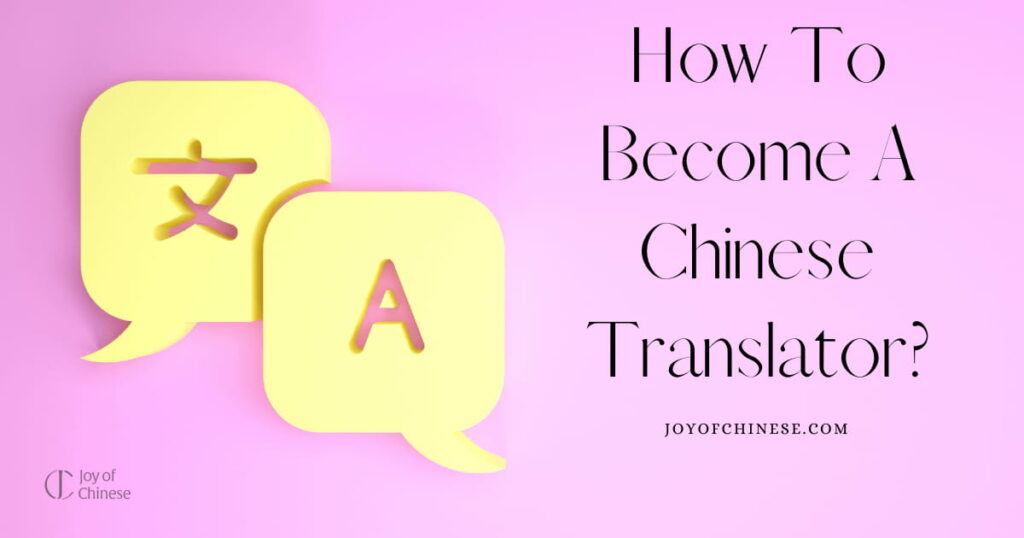
1. Qualifications for translators
To become a translator, you should typically have a bachelor’s degree. But it does not need a specific degree or combination of subjects.
Learning and improving languages during school or college is the best way to become a translator.
An individual can pursue a Bachelor’s and a Master’s degree in Chinese for a full-time career as a Chinese translator.
For translators, there are also specialized certification programs. You will do this as soon as you reach a certain level of competence.
Besides language skills, you should also know industry norms and sector-specific details. Plus, your knowledge of the technical aspects, technology, nuances of the work, and etiquette will benefit you.
2. A higher level of proficiency in Chinese
Translators need to be very proficient in at least two languages. This is a near-native level or the most advanced level of official language exams.
No matter what your native language is, you can find work requiring Chinese.
Grammar is only one aspect of this study. Also, it involves activities like reading newspapers and watching Chinese TV series to learn Chinese.
You also gain a better acquaintance with Chinese culture. The language becomes more familiar to you, and you gain a deeper understanding of it.
If you wish to become a Chinese translator, aim for the highest level of proficiency. Then, continue improving your language skills until you reach an advanced grade if you have not done so already.
To become a translator, one must have advanced language skills.
An at least two-language competency, like native, C1/C2, Mandarin HSK V/VI. Or another comparable reference system, is recommended.
Studying Chinese at a university or long-term program may be a good option. And if you want to stand out from the crowd, try a tailor-made translation program.
You can get an official diploma if you study on your own or with a tutor one-on-one. Yet, for employers to verify your Mandarin skills, they usually request reliable documents.
You can prove your fluency through certifications like HSK and TOCFL. You will also have a greater chance of being hired as a translator.
3. A strong writing and translating ability
Are you naturally gifted at writing and have an excellent command of the target language? If so, a translator would be a good choice.
There is no space for insincerity, incompetence, carelessness, and mediocrity.
Translating well demands more than just knowing the language. For example, even if a person is proficient in Chinese, they might not decipher effectively.
It is necessary to note that fluency in just one language does not guarantee success as a translator.
Writing skills need to be strong, and you must adapt to various writing styles, depending on the situation.
4. Good references, contacts, and networking
The translation is now an essential part of almost every company’s business. The problem is that these jobs are challenging to find through ads and online job boards.
Finding success is easier when you have a powerful resume and plenty of contacts.
It will help if you focus on improving your connections once you become a freelance translator. The more references you have, the better off you will be in the long run.
Making an online profile on job portals is one way to do that. You can also connect with HRs and recruiters on business networking websites like LinkedIn.
You can expand your network by getting in touch with professionals in this field. Also, you can send your CV to relevant companies.

How to get the translation project?
One can complete the translations on computers with the help of software provided by many employers. As an effect, remote working is easy and possible. You can also work from any location in the world.
Many translation service providers and companies employ Chinese language experts.
Avoid spamming agencies after creating a list of those you want to contact. It would help if you instead spent some time browsing their websites.
Likewise, if you intend to work as an independent translator. You will need marketing and business skills in the competitive freelance market.
You’re better off if you have a lot of language experience and education.
Having contacts can be a definite advantage for Chinese language translators!
How much does a Chinese translator earn?
Undoubtedly, a good paycheck is one of the topmost incentives for this profession.
There is a wide range of salaries for translators.
Many factors affect pay, such as language abilities, work experience, and the nature of the job. There is also a factor of language combination to think.
Consider translating, transcreating, or transcribing languages less commonly spoken. Then you will earn more than a general translator.
If you work in an organization, you will get a decent salary. Freelance translators receive rates based on word count, pages, or projects.
Final Words— Could this be a profession for you?
You might have difficulty imagining a career as a translator if you know Mandarin Chinese.
The dream can someday become a reality if you work hard and dream big. So keep trying, even if it takes a lot of motivation and persistence!
Being a translator may be a good career choice if you are hardworking and passionate about languages. Still, make sure you carefully weigh the advantages and disadvantages before deciding.
Translators are among the most popular professions among Chinese learners.
There are many reasons, like high salaries, growing scope of work, and flexible working hours. You can engage by doing work related to your passion, i.e., China.
Are you considering a career as a Chinese translator? Feel free to share your thoughts and questions below!




